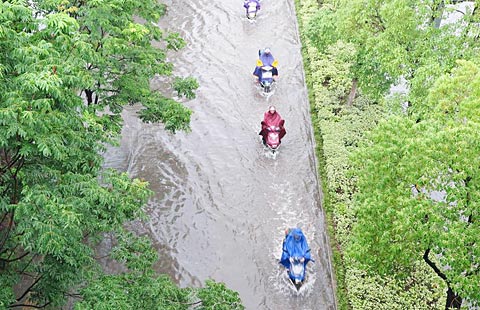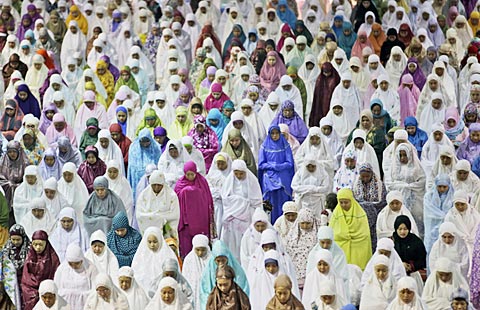Draft law will tax sites producing excess waste
Updated: 2015-06-19 09:38
(Xinhua)
|
||||||||
The State Council recently released for public opinion a draft law on environmental taxes, which proposes business taxes for pollutants, solid waste and noise.
The draft proposed tax rates ranging from 350 yuan ($57) to 11,200 yuan, depending on decibel levels, on various industrial noises. It would also double penalties to 1.2 yuan per unit of air pollutants, and 1.4 yuan per unit of pollutants in the water, and up to 30 yuan for each metric ton of solid waste. Rates will be doubled for emissions in excess of a stipulated amount.
Taxes may also be halved if emissions are below half the national standard.
Provincial governments may "appropriately" raise rates taking local environmental conditions into account.
The draft was drawn up by the Ministry of Finance, the State Administration of Taxation and the Ministry of Environmental Protection to promote an "energy saving and environmentally friendly" industrial system, according to the Legislative Affairs Office of the State Council.
Instead of taxing polluters, China currently collects a "pollutant discharge fee" that almost equals the standard tax amount in the draft law.
For each site that produces air and water pollutants, authorities can tax at most three major pollutants, though that number could reach five if the pollutants are all heavy metals. This allows provincial governments to increase the categories of pollutants subject to taxation based on its "special needs".
On June 9, Environment Minister Chen Jining said, "the Chinese environment is reaching or has reached its limit".
Chen characterized the overall Chinese environment as "poor", with high pollutant emissions, serious ecological damage and high risks.
He said the government will take "more forceful" measures in the next five years to protect the environment and promote green development.
According to the draft, the tax will exclude pollutants from agriculture except those from large-scale animal husbandry and mobile pollution sources including motor vehicles, locomotives, non-road mobile machinery, ships and aircraft, as long as the pollutants are within national standards.
Normal emissions by urban sewage and refuse treatment plants will also be exempted.
No punishment is specified for tax evasion or fraud, merely that tax authorities should report such violations to the Ministry of Environmental Protection.

 Painter uses butterfly wings as canvases
Painter uses butterfly wings as canvases
 Ten photos you don't wanna miss – June 18
Ten photos you don't wanna miss – June 18
 Man with 15 girlfriends charged with fraud
Man with 15 girlfriends charged with fraud
 Heavy rain, flood hit many parts of China
Heavy rain, flood hit many parts of China
 Muslims around the world mark first eve of holy month
Muslims around the world mark first eve of holy month
 Top 5 wealthiest women in technology
Top 5 wealthiest women in technology Warriors beat Cavaliers to clinch NBA title
Warriors beat Cavaliers to clinch NBA title
 Saving dogs from dog meat carnival
Saving dogs from dog meat carnival
Most Viewed
Editor's Picks

|

|

|

|

|

|
Today's Top News
Talks seen as prelude to visit by President Xi to US in September
Gunman kills nine people in South Carolina church shooting
US House moves to revive Obama's Pacific trade pact
Hong Kong lawmakers reject election reform proposal
Lies and false hopes entrap Xinjiangers
China's economic strategy focus of panel
UN strategy for long term
topic of debate
Donald Trump announces bid for
US presidency
US Weekly

|

|







